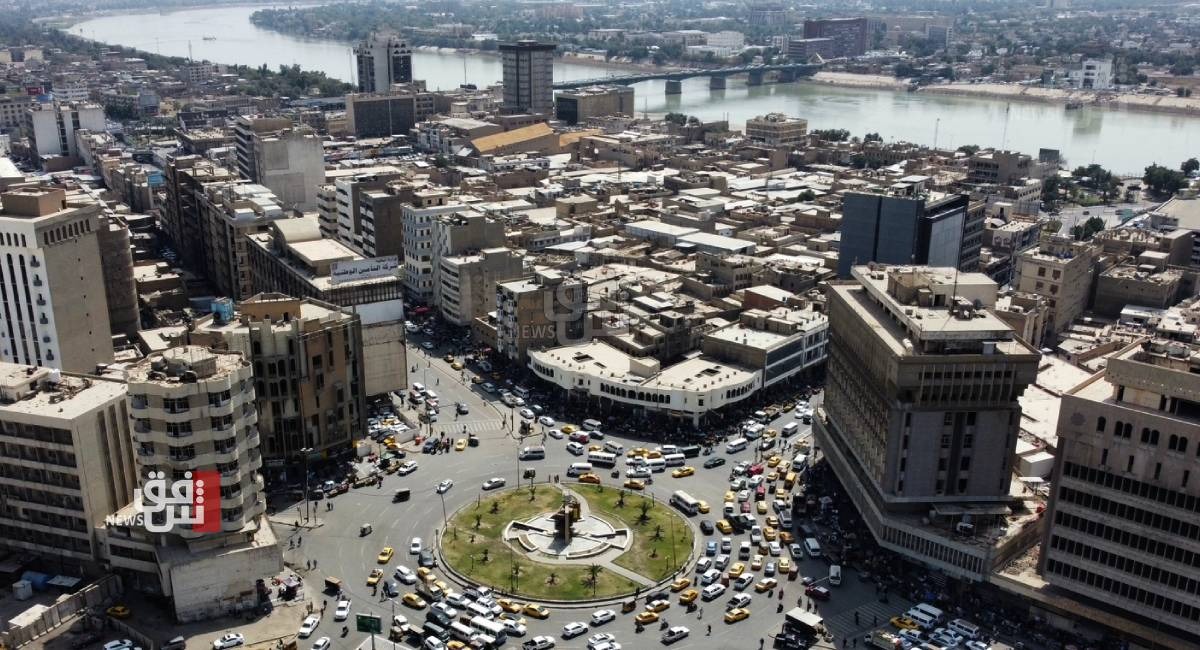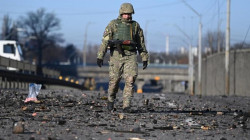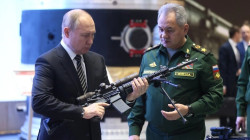Iraq could be dragged into unfinished US business in Mideast: after Ukraine in 2022, a new conflict could erupt in 2023

Shafaq News/ It was a good year to bury bad news – and bad deeds – as a clutch of dictators, assorted killers and repressive or anti-democratic regimes can testify. In Myanmar, Yemen, Mali, Nicaragua, the Democratic Republic of the Congo, Somalia and Afghanistan, to name a few crisis zones, egregious abuses and unrelieved misery attracted relatively scant, perfunctory international scrutiny.
The main reason for 2022’s blinkered perspectives is, of course, Ukraine, Europe’s biggest conflict since 1945. This is not to say war-torn Tigray or Guatemala, strangled slowly by corruption, would otherwise have made global headline news. Hard truth: western interest in developing-world conflicts is generally limited.
Yet Ukraine, as viewed from Europe and North America, and trumping other strategic and humanitarian crises, has monopolised political and media attention, aid and assistance efforts, and the popular imagination to an unprecedented degree. Knock-on cost of living increases ensured the war hit home in the west.
All the same, other international crises, actual or looming, will demand increased attention and resources in 2023. Three geopolitical battlegrounds in particular may be harder to ignore: China’s domineering behaviour in east Asia, the Middle East quagmire, and US-Europe tensions.
Whether extraneous events and shifting priorities will ultimately undermine Ukraine’s ability to resist and defeat Russia is unknowable at this point. That they will do so is surely Vladimir Putin’s best hope. For all their admirable courage, Ukrainians are more dependent than ever on unstinting western, principally US, support going into a second year of war.
Could they find themselves increasingly sidelined, especially if the war descends into prolonged stalemate? Rising military tensions in east Asia require particular attention, as illustrated by Japan’s stunning decision to roughly double defence spending.
Japan is ninth in the world in military expenditure. It now prospectively moves up to third, behind the US and China. More significantly, this shift marks a sharp break, if not an end, to Japan’s post-1945 pacifist tradition, which forbade, for example, involvement in overseas conflicts. Remarkably, polls suggest strong public support.
What is driving this change? The same factors that have induced South Korea and other regional countries to raise their game militarily, prompted the formation of Aukus ( the Australia, UK and US security pact) and are feeding deeper cooperation within the Quad (the US, India, Japan and Australia).
All these countries harbour a common fear: China. Beijing is aggressively extending its regional military reach. It is pursuing old territorial disputes with neighbours, including Japan and India, and creating new ones in the South China Sea. Last week, its forces again laid aerial siege to Taiwan.
Head-on (as opposed to covert) Israel-Iran military confrontation could be one result of a final western rupture with Tehran
Well-founded worries that China could attempt, in 2023, to make good Xi Jinping’s threat to seize Taiwan by force keep Pentagon wargamers busy. Could the US realistically take on China as well as Russia, effectively defending Taiwan and Ukraine at the same time?
When Gen Mark Milley, chairman of the US joint chiefs of staff, recently suggested Ukraine consider peace talks, this nightmare scenario of war on two fronts was possibly on his mind. Perhaps he, like Japan, was also thinking about a third potential adversary – North Korea and its proliferating nuclear-capable missiles and drones.
The Middle East, for decades at the heart of US foreign policy, has been relatively neglected since George W Bush’s Iraq debacle and Barack Obama’s Syria cop-out. Yet 2023 could be the year when a host of problems arising from this American distancing comes to a head.
Benny Gantz, Israel’s outgoing defence minister, last week predicted further, bloody escalation in the occupied West Bank resulting from prime minister Benjamin Netanyahu’s decision to give ministerial authority over the area to his anti-Arab coalition partners. Violence involving the Israeli army, Jewish settlers and Palestinians hit record levels in 2022.
Iran is near boiling point, too, owing to sweeping anti-government protests – and because nuclear talks with the west face imminent collapse. Even if Iran makes dramatic concessions, it is hard to see the US president, Joe Biden, cutting a deal with a regime that actively murders and tortures its young women.
Head-on (as opposed to covert) Israel-Iran military confrontation could be one result of a final western rupture with Tehran. That in turn could draw in Iraq and Syria – more unfinished US business – as well as Russia. Meanwhile, Turkey’s electorally challenged leader, Recep Tayyip Erdoğan, may attack Syria-based Kurds again – to distract attention from his domestic blunders.
Ukrainians wondering what 2023 may bring have good cause to worry about US-European unity and staying power, too. Splits among EU countries over negotiations with Russia may widen as the war grinds on. And there’s growing resentment in Washington that the US is taking most of the risks in Ukraine and paying the lion’s share of the costs ($48bn and counting), while the Europeans supposedly revert to piggybacking.
More broadly, transatlantic ties are being tested anew by protectionist elements in Biden’s landmark trade and tech legislation that have outraged Brussels. A more fundamental, surprising question, as the 2024 presidential election looms, concerns the robustness and integrity of American democracy in the Donald Trump era.
Who knows? Perhaps Putin will be ignominiously deposed. Perhaps Biden and Xi will kiss and make up. Perhaps peace in Palestine is not a mirage after all. One thing is certain in 2023. Ukraine will still receive more support and attention than Afghanistan and dozens of poorer, similarly embattled, less strategically important countries put together.
As the big powers fight their global battles, misery and mayhem in these less favoured nations will persist, largely unchecked and unnoticed. Happy new year!
(By Simon Tisdall for the Guardian)





